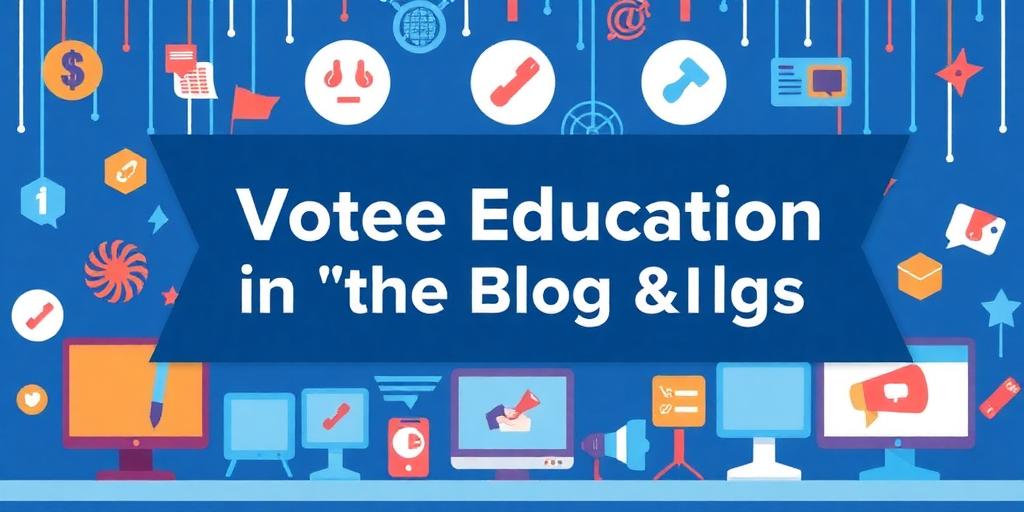Educating Voters in the Digital Age
The digital age has revolutionized how we consume information, and voter education is no exception. With a constant barrage of news, opinions, and misinformation, it's crucial to equip voters with the tools they need to make informed decisions. This post explores the challenges and opportunities in educating voters in the digital age, focusing on strategies for effective outreach and engagement.
The Challenge of Misinformation
One of the biggest hurdles in digital voter education is the spread of misinformation. Social media platforms and online news sources can be breeding grounds for false or misleading information, making it difficult for voters to distinguish fact from fiction. To combat this, voter education initiatives must prioritize media literacy and critical thinking skills. Voters need to be able to evaluate sources, identify bias, and verify information before accepting it as truth.
Strategies for Effective Digital Voter Education
Despite the challenges, the digital age also offers unprecedented opportunities for voter education. Here are some strategies for effective outreach and engagement:
- Leverage Social Media: Social media platforms can be powerful tools for reaching voters where they already spend their time. Use engaging content, such as videos, infographics, and interactive quizzes, to educate voters about candidates, issues, and the voting process.
- Create Online Resources: Develop comprehensive online resources that provide voters with accurate and unbiased information. This could include websites, blogs, and online guides that cover topics such as voter registration, candidate profiles, and ballot measures.
- Partner with Influencers: Collaborate with trusted influencers and community leaders to amplify your message and reach a wider audience. Influencers can help to break through the noise and connect with voters in a meaningful way.
- Utilize Targeted Advertising: Use targeted advertising to reach specific demographics or geographic areas with tailored messages. This can be particularly effective for reaching underrepresented or hard-to-reach voters.
- Encourage Civic Engagement: Promote online forums and discussions where voters can engage with each other and share their perspectives. This can help to foster a sense of community and encourage civic participation.
The Role of Technology
Technology plays a critical role in modern voter education. From online voter registration to digital polling places, technology can make voting more accessible and convenient for all citizens. However, it's essential to ensure that technology is used in a way that is fair, secure, and transparent. This means addressing issues such as digital literacy, cybersecurity, and data privacy.
Conclusion
Educating voters in the digital age is essential for ensuring a healthy democracy. By embracing new technologies and strategies, we can empower voters to make informed decisions and participate fully in the political process. While challenges like misinformation persist, the opportunities for effective digital voter education are greater than ever. It's up to all of us—educators, policymakers, and citizens alike—to seize these opportunities and create a more informed and engaged electorate.









